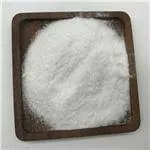The Versatile Applications of Ammonium Thiocyanate
Ammonium thiocyanate (NH4SCN) is a chemical compound that has garnered attention across various industries due to its unique properties and versatile applications. It appears as a white crystalline solid and is highly soluble in water, which enhances its usability in several chemical and industrial processes. Below, we explore the multifaceted uses of ammonium thiocyanate, ranging from agriculture to pharmaceuticals and beyond.
1. Agricultural Applications
In agriculture, ammonium thiocyanate serves as a crucial component in crop nutrition. It is often used as a nitrogen source in fertilizers. Nitrogen is one of the primary macronutrients essential for the growth and development of plants. By incorporating ammonium thiocyanate into fertilizers, farmers can enhance the availability of nitrogen to crops, promoting healthier growth and increased yields.
Moreover, ammonium thiocyanate has been studied for its potential to control pests and diseases in agricultural settings. It acts as a bioactive agent, providing a protective mechanism for crops against various pathogens. This reduces the dependency on traditional pesticides, which can have detrimental effects on the environment.
2. Chemical Industry
Ammonium thiocyanate is widely utilized in the chemical industry for the synthesis of other chemicals. It plays a role as a precursor in the production of various thiocyanates and thiourea compounds, which are valuable in organic synthesis and can act as building blocks in the manufacture of pharmaceuticals and agrochemicals.
Additionally, ammonium thiocyanate is used in the extraction of metals, such as gold and silver, from their ores. The compound can form complex ions with these metals, enabling their separation and purification. This application is critical in mining operations, contributing to the recovery of precious metals in a more efficient manner.
3. Pharmaceutical Industry
ammonium thiocyanate uses

In the pharmaceutical sector, ammonium thiocyanate serves several important functions. It is employed as a reagent in laboratory settings for various analytical techniques. For instance, it is used in spectrophotometry and chromatography for the detection and quantification of different substances. Its soluble nature and reactivity make it a handy tool for researchers in the development of new drugs.
Furthermore, ammonium thiocyanate has been investigated for its potential therapeutic properties. Some studies suggest that it may have applications in treating certain ailments due to its interaction with metabolic pathways. However, much research remains to be conducted in this area to fully establish its efficacy and safety as a pharmaceutical agent.
Beyond agriculture and pharmaceuticals, ammonium thiocyanate finds use in various other industries. In the textile industry, for example, it can be employed in the dyeing process. It acts as a mordant, helping dyes bind more effectively to fabrics, resulting in vibrant and long-lasting colors.
Ammonium thiocyanate is also utilized in the rubber industry, where it serves as an accelerant in rubber production. The compound facilitates the curing process, which is essential for manufacturing strong and durable rubber products. Additionally, its properties allow it to be involved in the formulation of certain plastics and polymers.
5. Environmental and Safety Considerations
While ammonium thiocyanate has numerous applications, it is essential to handle it with care, as it can pose environmental and health risks if not managed properly. Exposure can lead to irritation of the skin, eyes, and respiratory tract. Therefore, safety protocols must be followed to minimize exposure, including the use of personal protective equipment during handling and application.
In conclusion, ammonium thiocyanate is a chemical compound with a wide array of applications that span various industries. From enhancing agricultural productivity and serving as a valuable reagent in the pharmaceutical industry to its roles in textiles and rubber manufacturing, its versatility is undeniable. However, continued research and attention to safety are crucial in maximizing its benefits while minimizing potential risks. As industries evolve and seek sustainable solutions, the role of ammonium thiocyanate will likely continue to expand, making it a compound of significant interest in both scientific and commercial arenas.

